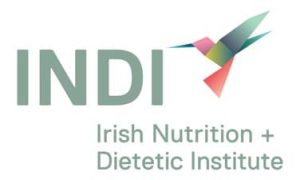5 Pitfalls To Avoid When Nurturing Your Child’s Relationship With Food.
For so many parents it feels confusing to know how to raise an intuitive eater, even I, as a dietitian, intuitive eating counsellor and mum of one often has to think about how I am supporting my son’s relationship with food.
Unfortunately we are not given a handbook telling us what to do when we become parents. We have to figure it out ourselves. Navigating through feeding and nurturing our children is a common challenge that most of us face.
The amazing thing is, all of us are born intuitive eaters. It is however what we learn as we grow that can dysregulate our ability to listen to our bodies, adopt food rules and engrain negative thoughts about how we see our bodies.
Over the years I have worked with many women and men to start reversing these learned behaviours. We use the evidence based intuitive eating framework which teaches us how to listen to our bodies and implement self-compassion which may have become a distant memory (if a memory at all)!
So what exactly is intuitive eating?
Intuitive eating is defined as ‘a self-care eating framework, which integrates instinct, emotion, and rational thought’. It was originally created by two dietitians, Evelyn Tribole and Elyse Resch in California in 1995 and has been steadily gaining momentum since its inception.
It adopts a flexible eating style and encourages us to tune into our internal signals guiding us on what, when and how much to eat rather than following specific food rules, diets and restrictions.
There have been over 160 published papers to date supporting the role of intuitive eating from a physical and psychological perspective. With research in adults and also now, in children.
- Some of the benefits of Intuitive eating include;
- Improved lipid profile (increase in the ‘good’ fats and lower ‘bad’ fats)
- Reduced rates of disordered eating and eating disorders
- Better body image and self-esteem
- Lower rates of emotional eating
- Lower frequency of weight cycling
Growing Intuitive Eaters
Young kids start out as intuitive eaters but it is what they learn as they grow that moves them away from listening to their bodies and they gradually move away from intuitive eating.
So what is leading to this?
Pressure being put on children to eat in a certain way
It is necessary that we give children the opportunity to make food decisions and learn from them without judgement. As parents, we provide the what, when, and where of food, and children decide how much to eat, if anything. Of course we may prefer for our kids to eat all of their vegetables at dinner first or have a little bit of everything we are serving them for variety but unfortunately that is not always how our child will choose to eat.
Foods being labelled as ‘good’ or ‘bad’
Labelling foods as ‘good’ and ‘bad’, ‘healthy’, ‘unhealthy’, ‘treats’ or ‘junk’ can firstly lead our children (or ourselves) to want that food even more. Secondly if we are attaching a moral value such as ‘bad’ to a food then our children may deem themselves as being bad for eating these foods, creating guilt or shameful feelings.
Observing dieting behaviours in others
Kids are little sponges, they soak up everything. If we struggle with our relationship with food as parents, this filters down to our children. When I ask my clients what their home food environment was like growing up, 90% of them speak about how they remember one or both parents dieting, make negative comments about their own bodies or label foods as ‘good’ or ‘bad’. These early exposures are hard to shake and ones we often carry with us throughout our adult lives. Taking time to reflect on our own behaviours around food and nurturing our own intuitive eating journey is a sure way which will then support our children’s relationship with food.
Restricting certain foods
Have you ever heard that a child is ‘addicted to sugar’? Or that they eat so much cake at a birthday party that they get sick? Often this is not due to the child being ‘broken’ or having no self control but is often a consequence of restriction. We see similar in adult behaviours after periods of dieting.
Instead, including all foods regularly in a neutral manner reassures our children that these ‘treat’ foods will be available again. The desire to overeat on that food will therefore be less intense.
Having specific rules around food
Again these rules often filter down from our own food rules or beliefs, for example, the message, “You need to eat this in order to eat that,” creates the potential for more harm than good. We can all understand this thought process, we want to nourish our children with a balanced diet. However if we take a few steps back and consider how that may sound to our child that some foods are good and some are bad, that they cannot be trusted to know what they want to eat and that certain foods are a reward for doing something good.
Conclusion
Children are natural-born intuitive eaters. We actually unlearn intuitive eating as we grow up. Our job as parents is to nurture that relationship and reinforce that our children can trust themselves. It is important that we consider our own relationship with food and how that is being demonstrated in front of our children. We also need to try to accept (as much as possible) that our children will not eat how we would like them to eat all of the time. Instead, helping our children develop their own skills to become competent eaters long after we are there is what we ultimately want to achieve.
Working with a dietitian and intuitive eating counsellor to help support you to work on your relationship with food first is a really good place to start to then be able to grow healthy, happy intuitive eaters!









